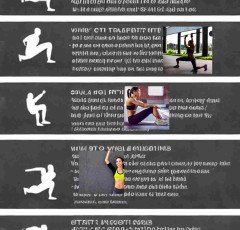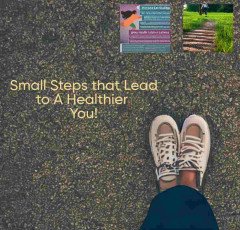
Tips for Self-Care

You may want to write down some of your primary goals for your rehabilitation work. These goals can be short-term and easy to achieve, or you can start by setting bigger, longer-term goals that you want to work toward.
Consider your passions, hobbies, and things that inspire you. Also consider your desires, such as the direction you want your life to take or the activities you would do more of if you could. Your chances of success in your goals will increase if you have a strong commitment to them.
After you set your own goals, you need to determine what it takes to achieve them
Be specific about your motivation for setting this goal and how achieving it would change your life. You should also consider the skills and strengths that will help you achieve your goal.
Try to engage the resources and support networks you will need to manage the process as needed. Finally, remember to focus on the goal rather than the potential problems. Keep an open mind and realize that there may be obstacles in your path.
Keep a notebook or notebook full of pictures and newspaper clippings to keep you motivated
Maintain yourself
The success of your rehabilitation process depends largely on how well you take care of yourself. People in recovery are discovering that the three pillars of their health—physical, spiritual, and emotional—are interconnected, and that supporting one supports the others. If you take care of every area of yourself, you are more likely to stay.
You can use the PTSD, Bipolar, Depression and Anxiety Three-Minute Diagnostic Tool and Progress Tracker to help you in your recovery. To get a screener or track your progress, click here.
Some tips for self-care are as follows
Take care of your relationships
In order to build resilience (the ability to fight off illness) and maintain good health, it is essential to include joy, spirit and relaxation in your life. Connect with yourself, connect with others, connect with your community and produce pleasure and contentment, these are the four C's of joy, spirit and relaxation.
When using these four C's, keep in mind that you should always try to push your comfort limits and try new things.
Know thyself
It is important to check yourself regularly. If you don't, you may not be able to detect changes or situations that are out of control. You can assess where you are in your recovery by checking in with yourself. You may find that you need to change the phase of your current action plan or try some new coping mechanisms.
If you've ever experienced low points, you know how challenging it can be to get out of them. It will be easier for you to realize that your struggles are not your fault if you are as informed as possible about your mental health problem. Making a list of your accomplishments is a great way to draw strength from it when you're down.
Journaling your experiences is another strategy that could be helpful. A fantastic method to get to know yourself is to keep a notebook. It is important that you are completely honest in your notebook; you should feel comfortable leaving a guard down there. This allows you to express your true emotions and relieve stress.
Becoming an advocate and sharing your story is another way to connect with yourself. Numerous studies have investigated how effective storytelling is as a type of therapy. Recovery involves sharing your personal experiences in writing or verbally. You can help encourage others like you by reading about other people's ideas and experiences.
Relate to others
The connection will happen whenever you reach
- Specific help, such as arranging for a friend to bring up your children from school.
- Emotional support such as receiving the statement "I'm really sorry you're having such a hard time".
- Perspective, such as knowing that even the moodiest teenagers are growing up.
- Suggestions for advice, such as planning a weekly date night with your partner.
- Confirmation, such as finding out that other people like to read train timetables.
Do you have enough help? Do you have at least a few close friends or relatives who
- You feel comfortable among them.
- Make you feel like you can tell them anything.
- It can help you solve problems.
- It will make you feel valued.
- May take your concerns seriously.
Get your community involved
Feeling part of a large community is a great way to feel emotionally strong and resilient during times of stress. Consider activities you enjoy. By looking into a local group that brings together individuals with similar interests, you can expand your social network. For example, there are many local hiking, walking and horse riding groups.
Have you always wanted to study a foreign language, for example? Join a group in your area or take a course. In addition, local support groups for a specific topic, such as parenting, coping with a health problem, or caring for a family member, can provide you with the help you need.
Alternatively, think about volunteering for a group in your area that fills a need. To ensure that your volunteering experience is rewarding and not a new source of stress, follow these tips : -
Find your ideal partner
Meditation research shows that meditation not only promotes relaxation, but also helps treat depression, anxiety, cancer, chronic pain, asthma, heart disease, and high blood pressure.
All you need is a few minutes a day to get started. Later, you may want to force yourself to work for 10, 20, or 30 minutes. There is a book, CD, online resource, class, or other form of meditation available. Or you can try some of the recommendations below. Keep your cool and try another one if the first one doesn't work.
Meditation styles include
Sit or lie down comfortably and practice deep breathing. Your hands should be on your stomach. Breathe in slowly through your nose and count to four. Feel the increase in your gut. Hold your breath for a moment. While exhaling slowly, preferably with pursed lips to regulate breathing, count to four. Your stomach will slowly drop. Several times, repeat.
Focus on your breath during mindfulness meditation. Without passing judgment, pay attention to what comes to mind. Simply return to concentrating on your breath whenever your mind starts to wander to your to-do list.
Close your eyes, relax and imagine a peaceful environment like a forest. Use every sense: Hear the sound of crunching leaves, the smell of wet soil and feel the breeze.
Chanting a mantra means finding a meaningful or soothing word, phrase or sound and sitting quietly. The mantra can be spoken aloud or silently. According to experts, repetition induces a physiological relaxation reaction.























































































 NordVPN
NordVPN  RPM 3.0
RPM 3.0  Graphics & Design
Graphics & Design  NordPass
NordPass  Amazon Best Selling Products
Amazon Best Selling Products  BEST SELLER TOP10
BEST SELLER TOP10  Smart Doorbell
Smart Doorbell  Women Fashion
Women Fashion  1150+Trendy kids coloring pages Bundle
1150+Trendy kids coloring pages Bundle  SEO Checklist
SEO Checklist  Acer Laptop
Acer Laptop  Unreal Engine 5 For Beginners Learn The Basics Of Virtual Production
Unreal Engine 5 For Beginners Learn The Basics Of Virtual Production  Best Home Appliances
Best Home Appliances  Favorite Company (Cuelinks)
Favorite Company (Cuelinks)  Men Clothing
Men Clothing  NordLocker
NordLocker  Top Rated From Amazon
Top Rated From Amazon  Best Selling Books
Best Selling Books  TitTok Revolution
TitTok Revolution  Online Technology Classes
Online Technology Classes  The Secret Email System
The Secret Email System  ASPINAL LONDON
ASPINAL LONDON  All Wireless Products
All Wireless Products  SOFAS
SOFAS  Online Marketing
Online Marketing  Hot Bags For Pain Relief
Hot Bags For Pain Relief  ELECTRONIC ACCESSORIES
ELECTRONIC ACCESSORIES  The Click Engine
The Click Engine  ASUS Laptop
ASUS Laptop  One World Collection
One World Collection  Hello Theme
Hello Theme  Only For The United States
Only For The United States  Creative Brief For Video Shoot
Creative Brief For Video Shoot  Best Sellers On Amazon
Best Sellers On Amazon  Unlimited access to classes on illustration, photography, design, film, music
Unlimited access to classes on illustration, photography, design, film, music  Artificial Intelligence
Artificial Intelligence  Sennheiser
Sennheiser  Best Robotic Vacuum Cleaners
Best Robotic Vacuum Cleaners 
















